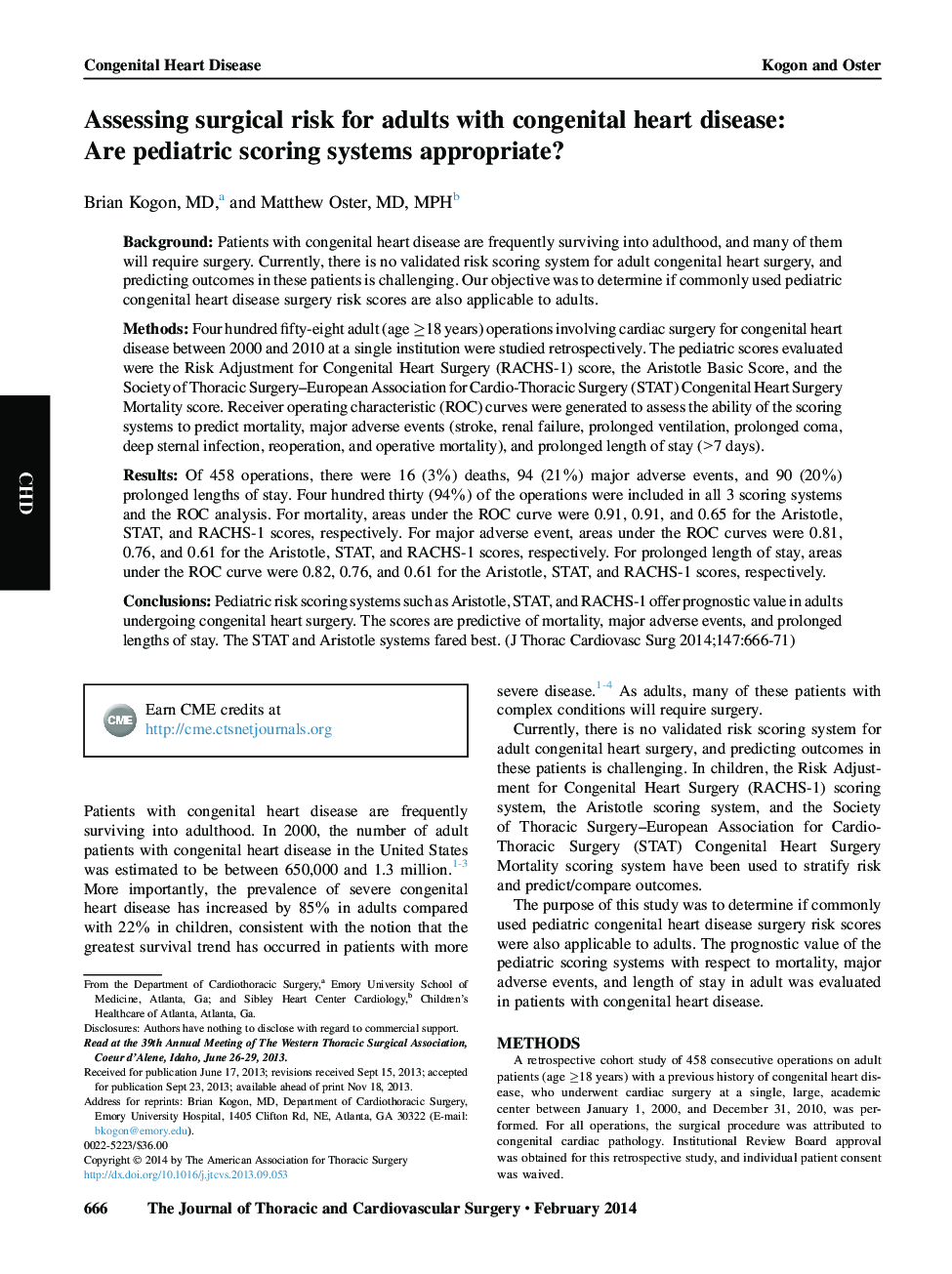| کد مقاله | کد نشریه | سال انتشار | مقاله انگلیسی | نسخه تمام متن |
|---|---|---|---|---|
| 2980217 | 1578614 | 2014 | 6 صفحه PDF | دانلود رایگان |
BackgroundPatients with congenital heart disease are frequently surviving into adulthood, and many of them will require surgery. Currently, there is no validated risk scoring system for adult congenital heart surgery, and predicting outcomes in these patients is challenging. Our objective was to determine if commonly used pediatric congenital heart disease surgery risk scores are also applicable to adults.MethodsFour hundred fifty-eight adult (age ≥18 years) operations involving cardiac surgery for congenital heart disease between 2000 and 2010 at a single institution were studied retrospectively. The pediatric scores evaluated were the Risk Adjustment for Congenital Heart Surgery (RACHS-1) score, the Aristotle Basic Score, and the Society of Thoracic Surgery–European Association for Cardio-Thoracic Surgery (STAT) Congenital Heart Surgery Mortality score. Receiver operating characteristic (ROC) curves were generated to assess the ability of the scoring systems to predict mortality, major adverse events (stroke, renal failure, prolonged ventilation, prolonged coma, deep sternal infection, reoperation, and operative mortality), and prolonged length of stay (>7 days).ResultsOf 458 operations, there were 16 (3%) deaths, 94 (21%) major adverse events, and 90 (20%) prolonged lengths of stay. Four hundred thirty (94%) of the operations were included in all 3 scoring systems and the ROC analysis. For mortality, areas under the ROC curve were 0.91, 0.91, and 0.65 for the Aristotle, STAT, and RACHS-1 scores, respectively. For major adverse event, areas under the ROC curves were 0.81, 0.76, and 0.61 for the Aristotle, STAT, and RACHS-1 scores, respectively. For prolonged length of stay, areas under the ROC curve were 0.82, 0.76, and 0.61 for the Aristotle, STAT, and RACHS-1 scores, respectively.ConclusionsPediatric risk scoring systems such as Aristotle, STAT, and RACHS-1 offer prognostic value in adults undergoing congenital heart surgery. The scores are predictive of mortality, major adverse events, and prolonged lengths of stay. The STAT and Aristotle systems fared best.
Journal: The Journal of Thoracic and Cardiovascular Surgery - Volume 147, Issue 2, February 2014, Pages 666–671
